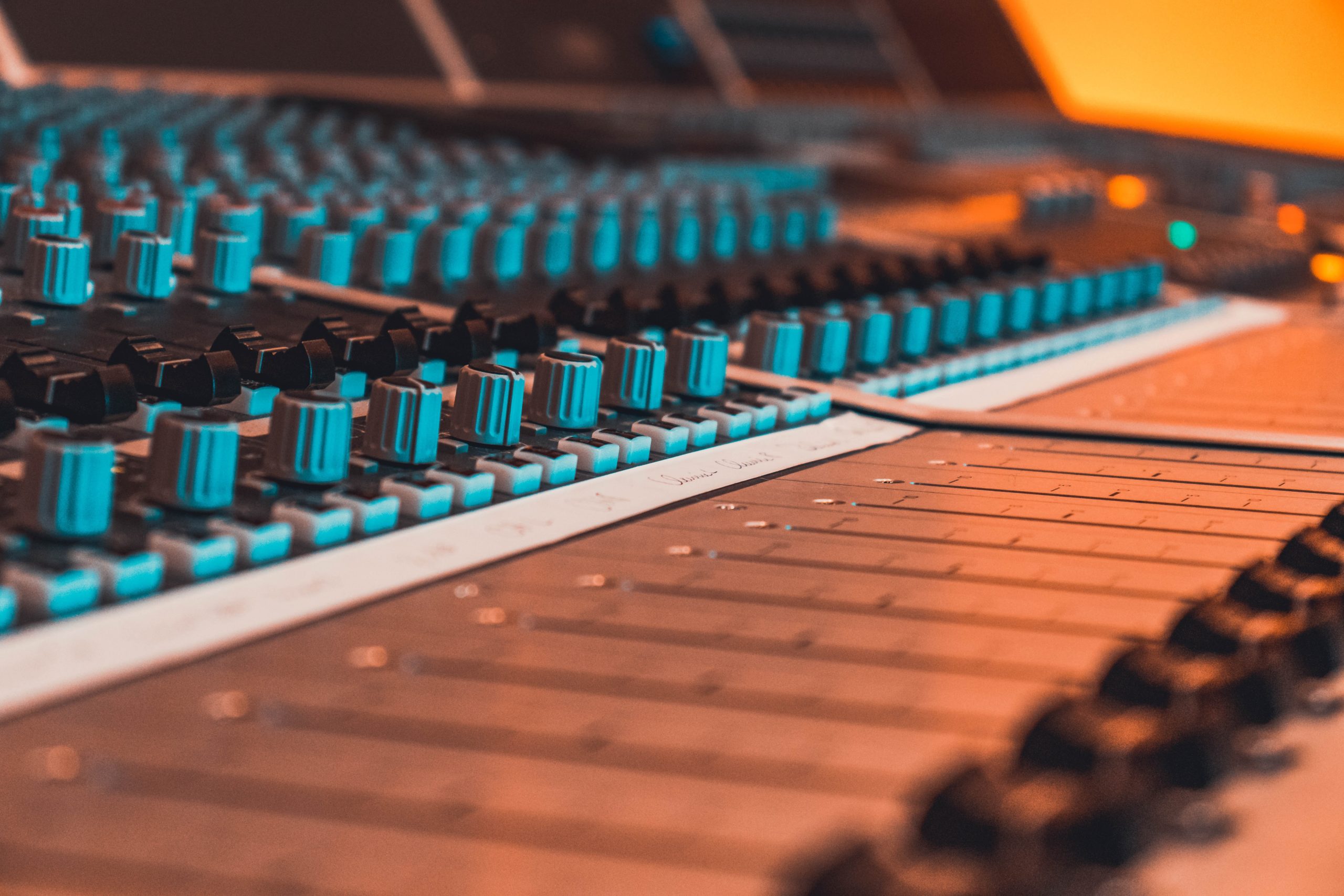[Written by Jackson Harvey (he/him)]
[Photo by Christian Wiediger on Unsplash]
“Get back to rap, you T-paining too much”, from Jay-Z’s tongue-in-cheek D.O.A (Death of Autotune) likely alludes to the kind of vocal modifications Kanye West has offered in tracks like Love Lockdown. For years, this has been a frequent stance from fans and media alike, but is this too simplistic?
We invented the wheel, we drove cars, flew planes, and now scoot about in those unicycle Segway contraptions, but we didn’t stop walking. These modern modes of transport are ‘unnatural’ augmentations to the limitations of the body, but I suppose that very few of us would rescind these luxuries afforded to us by modernity. Of course, looking to the future, it could be said that certain developments like Google Glass may cause a stir in the ethics department. An area where I see no cause for concern is in auto-tuning and vocal augmentation. Now, if a singer were to perform with vocal enhancement at a talent contest then a line ought to be drawn. Auto-tune at an audition would be like bringing a three-tier cake to an Eton mess bake-off and throwing it against a wall.
It may be contested that for already established artists, to auto-tune is to cheat. Why should they be exalted when there are so many talented singers out there? Cher’s Believe: good. Autotune at the Grammys: bad. But who really listens to Britney for her vocal acrobatics? We go to see these performers solely for entertainment and I’d much rather witness a popstar perform with assistance to a recording standard, than feel bad for Mariah Carey at New Year.
Let us flip the script; think of the people out there who are cursed with deplorable pipes but are talented songwriters. If auto-tune were to be dropped, then the world might end up missing out on a new Tiny Dancer, all because its writer sounds like a hiccoughing frog with a tone-deaf fly in its throat. Indeed, Tom Waits has done well for himself, but the great weathered warbler has traversed through so many artistic iterations. His distinctive voice has become a necessary feature for his fans to know whether it’s actually him or not. If most of us sang like that for Simon Cowell, our renown would be limited to Gogglebox.
But even legends are inauthentic and proud of it. Contrary to Waits, Bob Dylan has gone through so many diverse vocal transformations, that I’m uncertain as to whether he is not actually five people. Which of his voices is the real, authentic one? Consider the dichotomy presented when comparing Lay, Lady, Lay to The Man in Me. It seems to me that we all have a multitude of voices untapped in us.
Speaking of chameleons, Bowie utilised vocal manipulation throughout his final album to a haunting effect. You can hear it used most startlingly in its titular track, Blackstar. The augmentation here is not used for tidying up but rather for enhancing the unnatural, inhuman edge that the song calls for. Thus, the peak of one’s vocal prowess does not signal the end of the line for the songwriter. In fact, the extent of genetic capability is only the start.
Here is where Personal Computer Music steps in for those who are sick of the sound of their own voices. It’s way more upbeat than this suggests, akin to something like eating ice-cream for breakfast. PC Music revels in the robotic. Similarly, there is the effect-laden Lucky by Charli XCX, a song that intentionally relates its own bleakness by alienating the listener from the comfort of a human voice; All alone is its closing mantra. The liberal use of auto-tune by XCX and her contemporaries like Caroline Polachek is no fad either. Barely a decade after the birth of auto-tune, Imogen Heap began to pioneer the use of it to her own ends. And the engineering virtuoso shows no signs of stopping considering the release of her new Wii-friendly single Phase and Flow.
Withhold the icons and pop-stars gone before. The most important and exciting prospect regarding auto-tune and augmentation is how it levels the playing field. With the rapid technological progress our generation has witnessed, almost anyone can create music now. By singing one line into Garageband you can auto-tune, pitch-shift and contort the voice into whichever shape you wish. Suddenly a session at Abbey Road, a vocal coach and a bank loan are no longer necessary to be heard. All you need is a smartphone, an internet connection and an apology note to your neighbour, blaming the cat. What began as a means of making pop perfect back in 1997, has resulted in fostering a more inclusive art-form, decentralised from industry footholds like London and New York. Now you can share your music with whichever voice you wish, from wherever you like. Doesn’t Bon Iver live in the woods?
Anyway, what’s the use in fretting over melismatic perfection when Aretha’s already done it all. If the Queen of Soul is Everest and the sky’s the limit, then auto-tune is out of this world.

